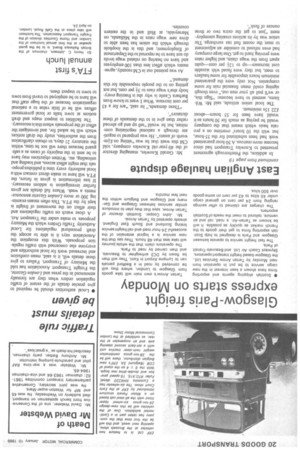East Anglian haulage dispute
Page 22

If you've noticed an error in this article please click here to report it so we can fix it.
continued from page 19
In addition, the Peterborough agreement presented to Knowles Transport had since become more onerous. A 50-hour guaranteed week had been substituted for the 55-hour, but with the 10 hours' overtime on a pro rata basis which meant that the company would be paying as much for 50 hours as it would have been for 55 hours—about £22 15s minimum.
The local union attitude, said Mr. Williams, seemed to have become: "Sign this, or we'll pull all your men out," even though signing could mean financial ruin for some companies. Not only were the guaranteed minimum hours impossible for some hauliers to meet, but they were faced with sizeable cost increases—up to 124per cent—quite apart from the wage claim, and higher rates were proving hard to get. One large company had even refused to consider an adjustment to meet the recent fuel tax surcharge. The union was by its actions creating unemployment "just to get the extra two or three ounces of flesh". Mr. Gerald Knowles, managing director of the 40-year-old Knowles company, told CM this week that he was "sitting on Omworth of assets". He was prepared to negotiate through a national negotiating committee, but he would "sell up and go abroad rather than give in to the demands of these dictators".
"These demands," he said, "are for a 43 per cent increase. What I want to know from Barbara Castle is why she is freezing everybody else's wage rises to 3+ per cent, but not getting on to the people responsible for this demand."
As was pointed out in CM recently, agreements which affect less than 100 employees and have no bearing on related wage levels do not have to be reported to the Department of Employment; and this is the loophole through which the union has been able to drive new wage rates in the Midlands, on Merseyside, at Hull and in the eastern counties.








































































































